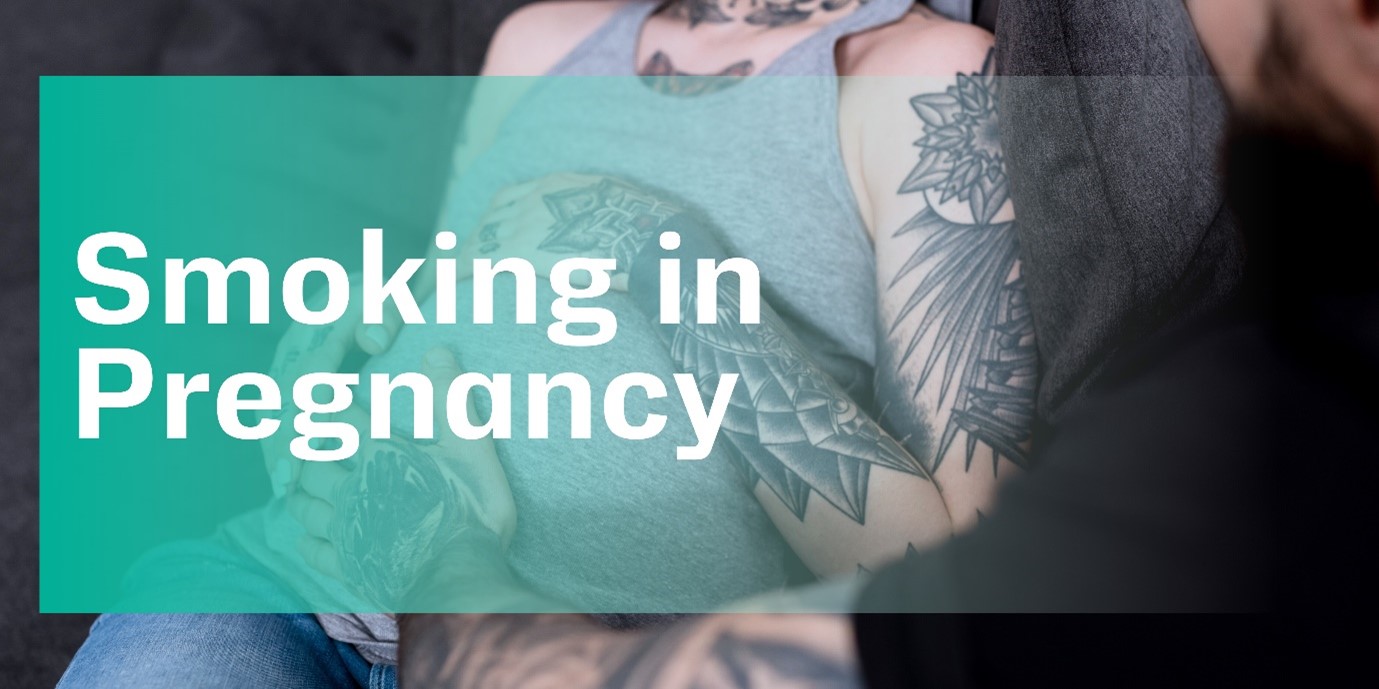
Helping pregnant smokers quit for good
Quick links
In England, 8.8% of mothers were smoking when they gave birth in 2023-231. Although this is decreasing, and the figure varies across different regions, it is still above the Government target of 6% or less1.
It is important that women receive support to stop smoking as early in their pregnancy as possible. While there are health benefits to mother and baby of quitting smoking at any point in the pregnancy, the sooner they can quit, the better. Women who stop smoking before 15 weeks’ gestation reduce the risk of premature birth and low birth weight – so much so that it’s the same risk as that of a non-smoker2. This said, even if they are further along in their pregnancy, they should still try to quit.
Providing support
NICE recommends that pregnant smokers receive intensive, ongoing support – as brief interactions alone are unlikely to help them successfully quit1. Support should include regular carbon monoxide (CO) tests, to monitor their CO levels and smoking status, encourage quit attempts and to provide positive to encouragement once they have quit6.
Primary care HCPs should also signpost pregnant women to their midwife for further support, or liaise with the midwifery team themselves if they need further information.
Risks
When communicating to pregnant women how smoking can be harmful, it may be helpful to explain:
- Carbon monoxide, found in tobacco smoke, is a poisonous gas that reduces the the body's ability to transport oxygen and can pass through the placenta to the baby's bloodstream. Carbon monoxide from smoking can lead to decreased oxygen levels for the baby, slowing baby's growth and development, and increase the risk of miscarriage.
- Smoking during pregnancy increases the risk of miscarriage, stillbirth and sudden infant death syndrome (cot death), and means the baby is more likely to develop asthma, frequent chest infections and behavioural problems.
- There is no safe level of smoking during pregnancy, and rather than cutting down, the only way to ensure the baby is not at risk from smoking is to stop completely2.
Non-judgment
Many pregnant women who smoke worry they will be judged for not being able to quit. Nicotine is highly addictive, and many people find quitting extremely difficult2.
An important part of a healthcare professional’s role is to support pregnant women through their quit journey in a non-judgmental way. Acknowledging and normalising their feelings and challenges they may face to help support them through their quitting journey is key.
In a similar way, positive reinforcements and celebrating any and all milestones on the quit journey can go a long way in helping a pregnant smoker to feel understood, and reassure her she is not being judged2.
Addressing concerns and myths
There are many reasons why a pregnant woman may struggle to quit smoking, and so it can be useful to discuss their concerns and provide corresponding information. Sometimes, myths can be passed on from family and friends, so it’s important to understand if misinformation is preventing success, and if so, correct any false beliefs. For instance:
For instance:
 Myth: “The stress of quitting smoking can harm the baby.”
Myth: “The stress of quitting smoking can harm the baby.” Fact: It has been proven that any stress from quitting does not harm an unborn baby. Quitting smoking is one of the best things you can do for your baby’s health. In fact, studies show people who stop smoking have less anxiety, depression, and stress than those who continue to smoke2.
Fact: It has been proven that any stress from quitting does not harm an unborn baby. Quitting smoking is one of the best things you can do for your baby’s health. In fact, studies show people who stop smoking have less anxiety, depression, and stress than those who continue to smoke2. Myth: “I’m worried about labour, and I’ve heard smoking will lead to a shorter, easier pregnancy and birth due to the baby being small.”
Myth: “I’m worried about labour, and I’ve heard smoking will lead to a shorter, easier pregnancy and birth due to the baby being small.” Fact: Smoking doesn’t make labour or birth any easier or less painful, nor will it impact the size of the baby’s head . Moreover, babies born early with low birth weight are more likely to have serious health problems that will affect their growth and development – so a delivering a smaller baby should not be something to aim for.5.
Fact: Smoking doesn’t make labour or birth any easier or less painful, nor will it impact the size of the baby’s head . Moreover, babies born early with low birth weight are more likely to have serious health problems that will affect their growth and development – so a delivering a smaller baby should not be something to aim for.5. Myth: “I’m struggling to quit but cutting down is enough to help the baby – I don’t need to give up completely”
Myth: “I’m struggling to quit but cutting down is enough to help the baby – I don’t need to give up completely” Fact: There is no safe level of smoking during pregnancy. Even smoking a few cigarettes each day carries significant risks, including stillbirth, sudden infant death and heart defects.2 There are very few, if any, health benefits from cutting down the number of cigarettes smoked, but the benefits of quitting completely include lower risk of health problems like asthma, and a better chance of the baby being a healthy weight3,6..
Fact: There is no safe level of smoking during pregnancy. Even smoking a few cigarettes each day carries significant risks, including stillbirth, sudden infant death and heart defects.2 There are very few, if any, health benefits from cutting down the number of cigarettes smoked, but the benefits of quitting completely include lower risk of health problems like asthma, and a better chance of the baby being a healthy weight3,6..Partners and other household members
The National Centre for Smoking Cessation and Training (NCSCT) also recommends that all pregnant women are asked whether their partner smokes, or if there are other smokers in the home2.
If she does live with another smoker, NCSCT recommends that HCPs:
- Explain the dangers of secondhand smoke to her and baby, and that living with another smoker presents an extra challenge to them.
- Ask whether the partner would be interested in stopping smoking and arrange support accordingly.
- Explain that being around smokers can make her own quit attempts harder.
- Advise that she asks other smokers in the home not to smoke around her or leave cigarettes in view and provide practical suggestions for how she can help to keep her home smokefree2.
 |
More information can be found on our ‘Smoking Partners’ page |